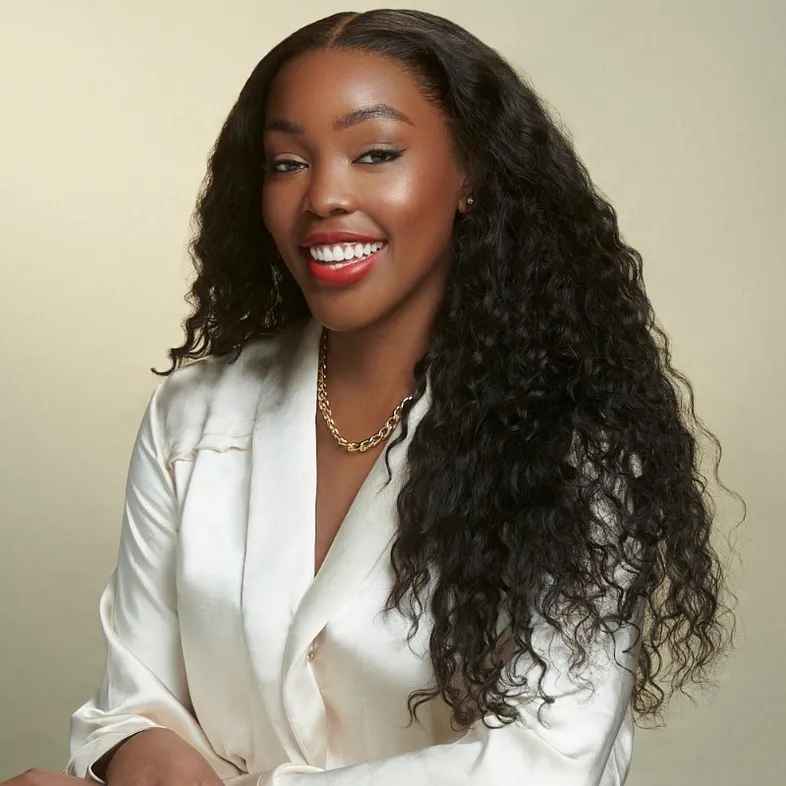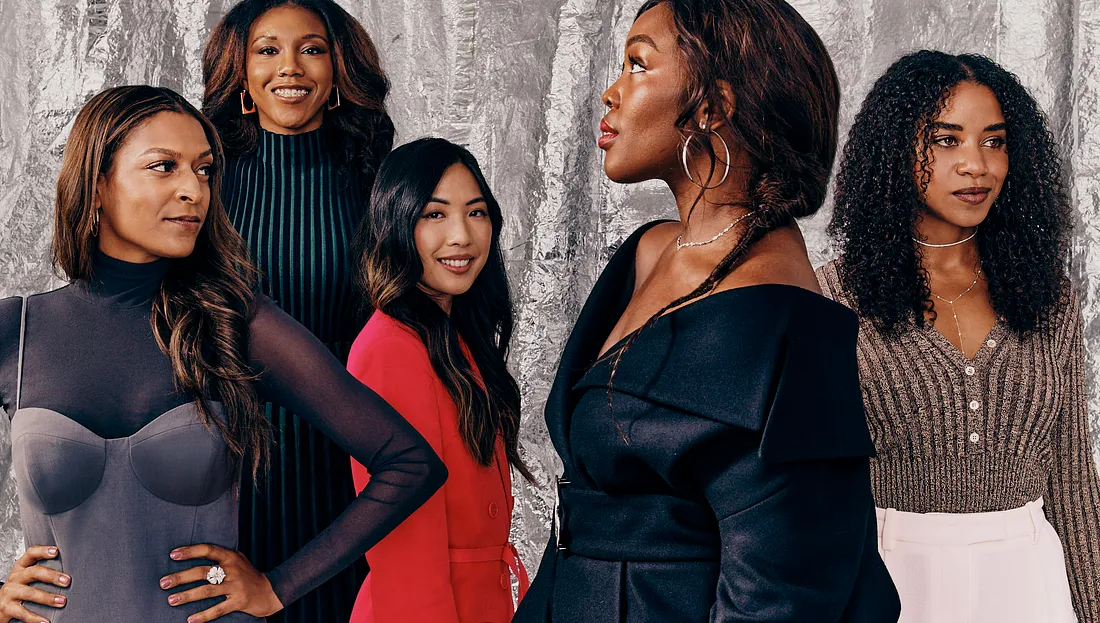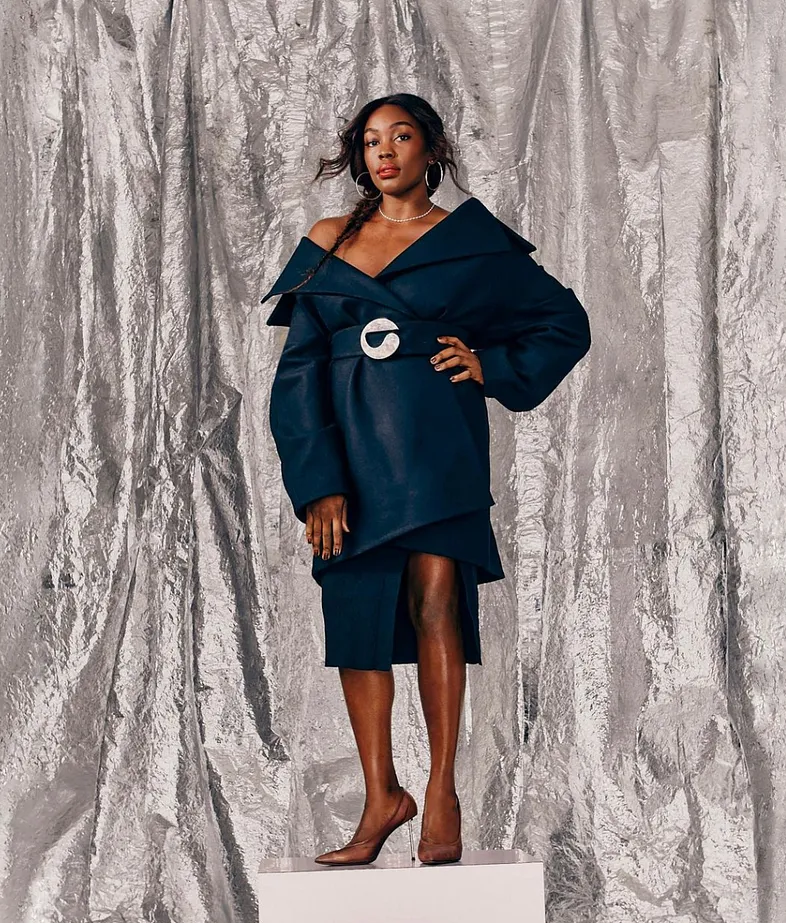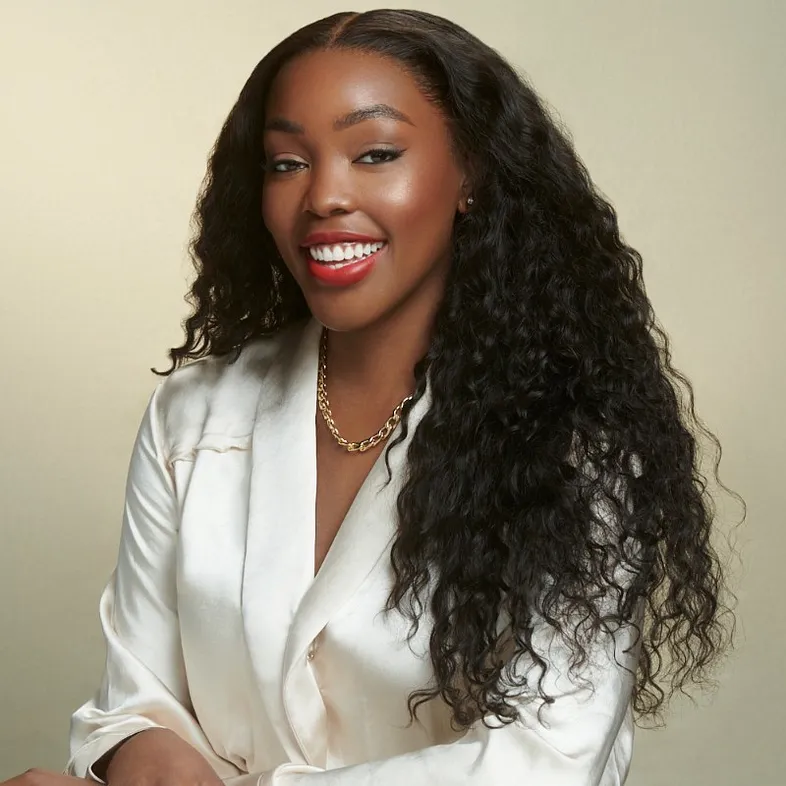
Image via twitter
Storytelling sits at the heart of Isoken Igbinedion’s skyrocketing journey as a co-founder of Parfait — an AI-powered service that supports Black women looking to find — or create — a customizable wig.
“I think the biggest takeaway that I had from that first round of $40,000 to the $6 million we’ve raised is to remember the bigger vision and practice storytelling,” the Cosmopolitan X C-Suite 2022 C-Suite honoree explains. “As much as you might have solid fundamentals of business, at this early stage, people are still buying into you and want to build with you and be invested in what you’re building. Do not discount the amount of networking and the amount of storytelling that goes into actually closing around. It is probably one of the most important aspects of the fundraising process.”
Find out how this rising entrepreneur has navigated her game-changing company through the development of AI, successfully fundraising her first round through a completely alternative pathway and the advice she has for all Black women entrepreneurs this Juneteenth.
digitalundivided: Your goal as an entrepreneur is to build a visionary company bringing a marginalized community to the future. How are you doing that with Parfait?
Isoken Igbinedion: Parfait was born to create products and experiences with technology that genuinely recognize and prioritize women and people of color.
The origins of Parfait started with a problem experienced by many women of color: managing and caring for our textured hair. My journey began at ten years old after a dangerous encounter with a chemical relaxer that made my natural hair fall out.
I started using hair extensions to give my hair a break and a chance to regrow. I spent the next 20 years navigating this friction built by a highly manual market of hair products and services. There are 1000s of available retailers, yet there’s a slight variation, brand, or product variety. There is significant education and skills required to use these products effectively. There’s also been little innovation in the manufacturing process to make it easier for stylists to serve women.
In an era when technology makes the lives of everyday people easier — we’ve got driverless vehicles that can connect to people anywhere in the world — yet more attention should be paid to solving problems for marginalized communities. This stems from the lack of investment in technical innovation to improve the supply chain and buying experience. Worse, the technology available to enhance these experiences lacks the diversity needed to provide exceptional outcomes for people of color.
Black women deeply feel that problem, especially in the beauty industry. McKinsey completed a study that found that Black consumers are willing to shift about 30% of their spending to companies that can deliver on their needs and are willing to pay 2x more for that opportunity. So we’re seeing women continue to search for a better experience.
This sentiment is especially true for wigs and extensions.

Image via digitalundivided X Cosmopolitan Magazine’s The New C-Suite 2022 Cohort announcement
digitalundivided: How does Parfait use AI within your wig-making product?
Isoken Igbinedion: AI allows us to capture the critical inputs required to make the perfect wig for our consumers. That includes the cranial measurements of your head — your circumference, ear-to-ear height, neck-to-neck size, and the color palettes of your skin tone. With just four selfies, our customers complete our process by capturing those measurements and, in turn, reduce the laborious task of manual measurements and skin tone matching.
Once their purchase is complete, that’s where our magic starts. We use our AI-captured inputs to fuel our manufacturing capabilities. We have a novel on-demand manufacturing process that allows us to incorporate technology to quadruple the capacity of a single stylist without ever sacrificing quality and speed. We did this by developing digital tools that our AI feeds into, which allows our stylists to ensure quality and repeatability. These capabilities will enable us to deliver custom wigs extremely fast — between seven and nine business days from purchase to delivery.
digitalundivided: What challenges have you faced using AI in developing Parfait’s products? How are you navigating those challenges?
Isoken Igbinedion: This AI boom is just now starting to have much visibility. But it’s been here for quite some time. A significant challenge when developing AI technology was the need for a large, diverse data set. AI can only be informed by decisions in any situation when it has access to relevant data. For diverse communities, having these various data sets for this technology to be useful is extremely important. In the first two years of our inception, we’re building this dataset and the technology. Initially, when we started to try to run our algorithms, we noticed we were getting incorrect sizing because the data sets we were using primarily reflected people who didn’t wear wigs. Still, it didn’t have many Black women in it. We couldn’t even pay for that data set. We had to go out in the field, use our friends or family or Wharton communities or school communities to collect and test that data to ensure that it reflected the women and the people we were serving with our wheat products and AI technology. While we use AI to capture the critical inputs required to make our wigs, we also constantly use a human in the loop to optimize and annotate those data sets. In that way, the product and service outcomes work for women and people of color because it’s designed to work for you.
When we think about our impact and what we want to do in AI, we want to be one of the first companies to be leaders in ethical AI. Parfait wants to ensure that people have access to technology and datasets diverse enough for these products and service outcomes to work for everybody.
digitalundivided: I wanted to shift a little bit of the focus to talk about how you raised that $40,000. It’s an untraditional and innovative way of getting the funding you need to build. Please tell our readers a little bit more about what happened. And in your own words, why do you think this approach worked?

Image via digitalundivided X Cosmopolitan Magazine’s The New C-Suite 2022 Cohort announcemen
Isoken Igbinedion: Our first 40k was an exciting experience. I was fortunate to have my co-founder at the beginning of the process. She’s like a technical genius. Her background, Stanford, Bachelor’s, Master’s in Computer Science and Electrical Engineering, finishing up her Ph.D. at MIT focused on computer vision.e realized we needed to train these models. And that required a little bit more money than we expected.
At the time, I was working at Microsoft as a product marketing manager. I just started talking to engineers about what we wanted to build, especially in my community. At the time, we couldn’t find any angels in our network to invest that first $40,000 to make something as our prototype and our MVP to go out and raise a genuine round. As I was having these conversations about the core of what we wanted to build, this senior manager on the engineering team at Microsoft heard about what we were trying to develop. He started talking to other engineers in his circle and trying to figure out how to get us this $40,000. They pooled their resources and created the $40,000 to build these algorithms.
It was a different approach than you typically would have, right? But it was the right one, because even today, those are some of our greatest supporters who help us review code if we need to, when we’re under restore. That experience also really taught me that building buy-in and get supporters across the journey That early round of funding really set the stage for us to be able to raise the rest of our Round.
digitalundivided: As you may know, we’re focusing the first half of our June coverage on Juneteenth. What advice do you have for other Black women entrepreneurs, especially those who might be thinking about — or who are — developing products and services for Black women?
Isoken Igbinedion: From a product development and growth perspective, ensure you stay as close to your customers as possible. One thing we learned early was that Black women are not a monolith. Our founding team is diverse in skin tone the background from life experience. But defining those consumer personas — especially for women of color — has yet to be done as in-depth as it has for our counterparts. Stay close to your customer. Be obsessed with them, and the product will produce essential features.
From a fundraising perspective, the process was complicated in getting people to see past their own biases. Most of the time, they don’t even realize they have them, but you can see and feel it in their questions. The way that I was able to navigate that was by needing to prepare more. Assume that they will ask you questions if you’re at the seed round in series A, and be ready to have an answer for it. My level of over-preparedness was one of the things that my earliest investors mentioned as one of the reasons why they invested because they also understood what that uphill climb would look like. They wanted to know if we had the ability, the capabilities, and the desire to push past that.
Overprepare, build relationships early on, and get people invested in you as a person, not just you as a Black woman or a founder. Get them invested in you as a human being. That helps to remove some of the inherent biases about what you look like and what your background is. Then they can dive into what you’re trying to build. If they can see who you are, that sets you in a position to put your best foot forward.
You gotta keep trying — it will get many “no’s.” If I had stopped at my 20th or 50th, “no,” I would not be here. The market will cool down eventually. And so, keep at it and stay diligent. And don’t quit. I mean, that’s when you lose is when you leave. That battle is a tough one; I can’t even lie. But it’s not impossible. Knowing something is possible, staying positive, and doing everything you can to set yourself up for the right investors, is the best thing you can do right now.
[Editors note]: This interview has been lightly edited from its original transcription.

